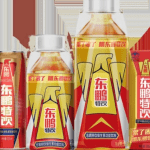by Melody Korongwe
The recent closure of OK Zimbabwe branches,one of the country’s largest and most trusted retail chains, has dramatically reshaped Zimbabwe’s shopping landscape.
For years, OK Zimbabwe was a staple for affordable and reliable goods, offering a wide selection of groceries, household items, and essentials.
Its sudden shutdown has left customers grappling with a new reality, navigating a fragmented market dominated by informal traders, and raising questions about the future of the retail sector in the country.
When OK Zimbabwe closed its doors, the news sent shockwaves through the community, leaving many customers unsure of where to turn for their shopping needs.
For individuals like Martha Moyo, a mother of two from Harare, the closure was particularly devastating. “I was devastated when I heard that OK Zimbabwe had closed,” Martha shared.
“I didn’t know where I was going to buy my groceries from. The other stores in the area just didn’t have the same selection or prices,”she added.
Martha’s experience was echoed by many loyal customers who had relied on OK Zimbabwe for years.
The closure left a significant gap in the market, and alternative stores lacked both the variety and affordability that OK Zimbabwe had provided.
In the aftermath of the closure, many customers were forced to turn to informal traders, such as tuckshops and street vendors, to buy their essentials.
However, these traders, who often operate in foreign currency, posed challenges for consumers accustomed to paying in local currency.

Tafadzwa Mhangwa like many others, had to exchange her Zimbabwean dollars for US dollars on the black market to continue shopping.
“I have to sell my Zimbabwean dollars on the black market to get US dollars to buy groceries,” he said.
This reliance on foreign currency has made shopping more expensive and time-consuming, with the black-market exchange rate (US$1:40 ZiG) further eroding purchasing power.
With fewer formal retailers in the market, informal traders have been able to increase prices for basic goods. Once accustomed to the convenience of one-stop shopping at OK Zimbabwe, customers now find themselves visiting multiple tuckshops and informal markets, which consumes both time and energy.
“Now, I have to go to three or four different places just to get the basics. The prices are higher, and the quality is not always good,” said Tendai Moyo, a local teacher.
Unlike formal retailers, informal traders often operate without strict quality controls, leaving consumers vulnerable to substandard products.
“I bought a bottle of cooking oil from a tuckshop, only to find out it was expired.At OK Zimbabwe, I never had to worry about things like that. Now, I have to be extra careful, but sometimes I have no choice.”shared Promise Mleya ,a nurse in Kuwadzana.
The closure of OK Zimbabwe branches has led to calls for government intervention to stabilize the retail sector.
Economic analysts highlight that government policies, such as exchange rates and regulations, have contributed to the challenges faced by formal retailers. McDonald Ncube urges urgent reforms to address these issues.
Melody Korongwe is a driven and ambitious journalist with a strong passion for storytelling. Holding a Bachelor’s Degree in Journalism, Media, and Broadcasting from the University of Zimbabwe, she possesses a solid foundation in newswriting and media principles. With a keen interest in contributing to the media industry, Melody is dedicated to leveraging her writing skills to produce high-quality content. She can be reached at melodykorongwe4@gmail.com or +263 786 640 520
Read more:
- Chinese brands set targets on conquering new markets
- Ruvimbo Vambe’s Tammy’s Classic Foods Rises Above the Odds
- EcoCash Holdings to rebrand to TN CyberTech Investments Holdings Limited
- Simbisa Brands accelerates regional expansion and enhances customer experience
- EcoCash expands horizons with outbound International Money Transfers





